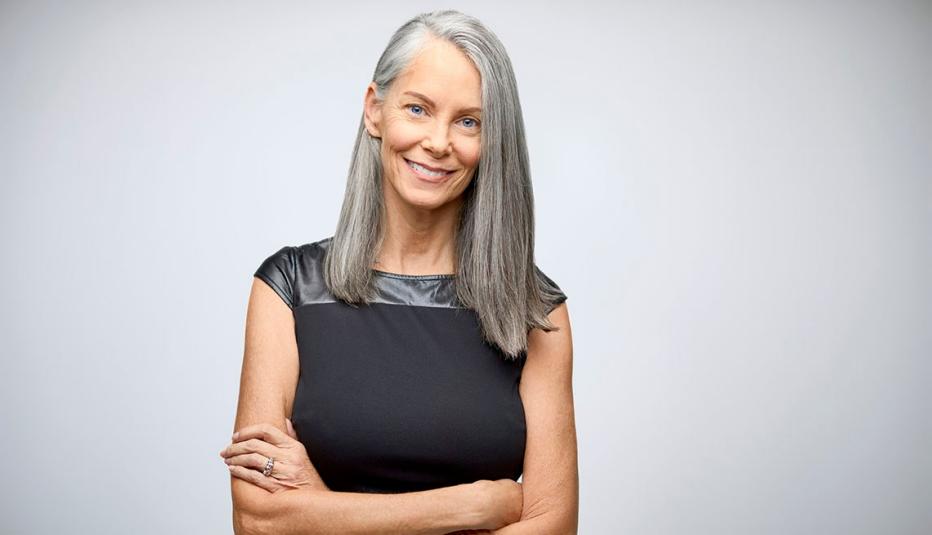AARP Hearing Center


A new survey by The Harris Poll on behalf of AARP reveals the priorities and concerns of a critical voting demographic that could determine the outcome of the 2020 presidential election: women voters ages 50 and older.
The survey, conducted online during November 2019, includes a number of valuable insights.
On Voting
Nearly all women ages 50 and older (95%) say they are likely to vote in the November 2020 election, but 7 in 10 (69%) haven’t decided who they’ll vote for.
And if the election were held today, 44% of women voters ages 50 and older who consider themselves Independents aren’t sure who they would vote for.
On National Leadership
Many older women voters give our country’s leaders failing grades on solving the issues that matter most to them and their families.
- The high costs of healthcare & prescription drugs (46%)
- The opioid epidemic (36%)
- Prices rising faster than income (34%)
- College affordability and student debt (32%)
- Future of the Social Security system (30%)
Women voters ages 50 and older are ready for change.
Fewer than half have a favorable impression of national leaders from both political parties.
On the Candidates
Nearly half of older women voters (45%) would prefer an “experienced” candidate over one that brings a “fresh perspective” (32%).
Women voters also identified ethical and trustworthy as the most important qualities for leaders to have.
On Healthcare
Healthcare is the leading national issue for older women voters.
Many older women continue to struggle with the cost of healthcare, and it is their top-of-mind issue as they go to the polls.
- Nearly 3 in 10 have had to skip medical care because it was too expensive.
- Nearly 4 in 10 cannot afford to pay for their healthcare.
- Nearly 7 in 10 feel older people pay too much for healthcare compared to others.
But it’s not just a personal issue.
Healthcare is so important to older women voters that when asked what type of world they want to leave future generations, affordable healthcare is a higher priority than peace, hunger, racial equality, and climate change.
On the Economy
Older women voters have a more cautious outlook on the economy compared to their male counterparts.
- Overall, older women are more likely to say the economy is on the wrong track (48%) compared to older men (35%). And more women feel the economy isn’t working for them personally (37% of women vs. only 23% of men).
- Men ages 50 and older are more optimistic about their personal financial situation than women: Just under 1 in 4 older women (24%) say their personal financial situation will improve in the next 12 months vs. nearly 4 in 10 men (38%).
- Older women’s lack of confidence in the economy affects their personal outlook on retirement. Older men are much more confident overall than older women that they will live comfortably in retirement (62% of men vs. 47% of women).
But not all older women voters feel the same about the economy.
Race and ethnicity is a differentiator among older women voters:
- African American women are more likely to say the economy is not working well for them personally (50% vs. 37% for all older women voters).
- African American women are more likely to say the U.S. economy is on the wrong track (69% vs. 48% for all older women voters).
- However, African American and Hispanic women are more likely to think their personal financial situation will improve (29% and 27%, respectively, vs. 24% for all older women voters).
Also, where women live is relevant: Suburban women voters ages 50 and older have the brightest economic outlook.
- 63% say the economy is working for them vs. 50% of those in urban areas and 52% of those in rural areas and small towns.
- 54% say they could live comfortably through retirement vs. 45% of those in urban areas and 37% of those in rural areas and small towns.
- 40% say the economy is on the right track vs. 28% of those in urban areas and 36% of those in rural areas and small towns.
Methodology
This survey was conducted online within the United States by The Harris Poll on behalf of AARP, November 8–25, 2019, among 3,151 self-identified registered voters ages 50 and older. The overall sample had 1,924 women voters ages 50 and older.
The data are weighted to the United States population ages 50 and older by education, gender by age, race, Hispanic ethnicity, marital status, census division, household income, household size, and employment status to population benchmarks from the March 2018 Current Population Survey (CPS). Hispanic respondents are also weighted by language proficiency to benchmarks from the 2015 Pew Research Center Hispanic Trends Survey. Propensity score weighting was also used to adjust for respondents’ propensity to be online. Raked weights are estimated using Random Iterative Method (RIM) weighting.
For more information, contact Rachelle Cummins at rcummins@aarp.org. For media inquiries, contact media@aarp.org.































































